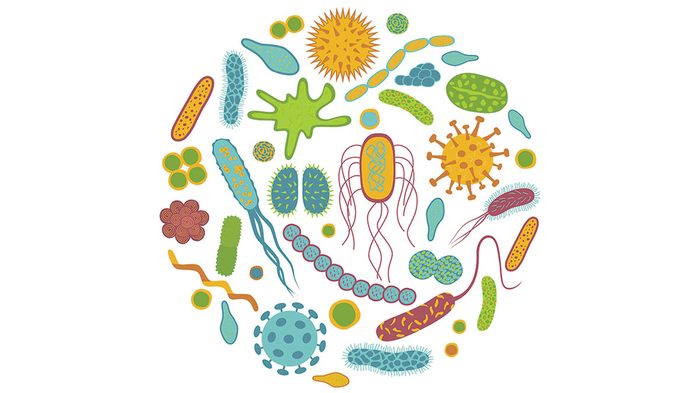
Probiotics: What you need to know
Probiotics are to health what the little black dress is to fashion. While it might appear to be trendy, it really is always in style.
The reason you hear buzz about probiotics and then crickets is because of research. From my years as a health editor, every lab coat I’ve interviewed touts the benefits of these gut-friendly bacteria. And they all say we are just at the beginning of learning what probiotics can do for our health.
Back in the early 2000s, the research was based around vaginal infections. Then about 10 years later, it was all about digestive health, including irritable bowel syndrome, cholitis, Chron’s and more. But with our immune system stemming from our gut (that’s why healthy really is all about diet), medical researchers are predicting probiotics can play an even larger role in our overall health.
Now, that’s not to say what we’ve heard about probiotics is all true, which is why I reached out to a gut-specialized naturopathic doctor, Dr. Sara Celik, on behalf of Renew Life, clears up the myths and focuses on the facts about probiotics.

Probiotics only help with digestive issues.
So, not true. Thanks to research, we are learning more about its benefits.
Dr. Celik says: “Many people with gut issues opt for a probiotic supplement to reduce bloating, treat constipation, and support healthier digestion. However, research supports the use of probiotics for other health conditions as well.
“Clinical studies show probiotics can reduce vaginal discharge or itching due to yeast infections1 and can also support a stronger immune system. One study showed that a high potency of Lactobacillus acidophilus administered for three weeks demonstrated positive immune benefits.
“Emerging research has also confirmed that probiotics are beneficial for skin conditions such as eczema and acne. The future is exciting as we discover further benefits of probiotic use.

Yogurt provides all the good bacteria you need.
Yogurt is great, but…
Dr. Celik says: “While yogurt is a popular choice for many, it does not satisfy the needs of those looking for multiple strains at higher potencies. Consider this: Yogurt typically provides less than one billion active bacteria per serving, which does not compare to a probiotic supplement providing 50 billion active bacterial cultures per serving.
“Mary Scourboutakos, a postdoctoral research associate who co-authored a probiotic study along with other nutritional science researchers at the University of Toronto, [reports] that the dosage of probiotic bacteria in some yogurts are 25 times lower than what clinical trials found to be effective. The researchers concluded that many yogurts on the market do not offer the right dosage of ‘friendly’ bacteria that is necessary for health benefits.”
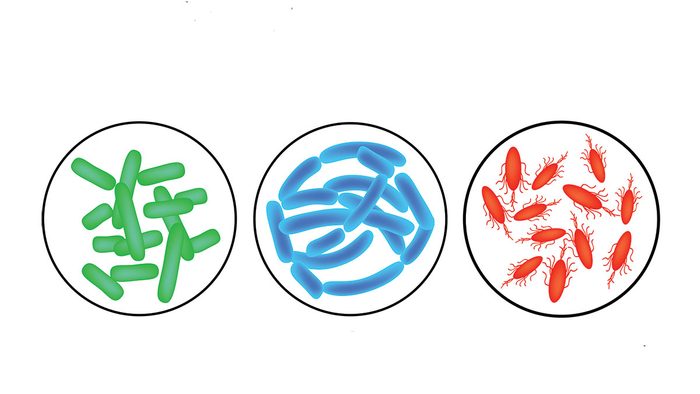
All probiotics are the same.
Each strain is very unique.
Dr. Celik says: “No, not all probiotics are the same.” So, to find the right probiotics supplement for you, you have to look at the number of strains in the formulation, the potency, as well as whether a delivery system exists. “Many probiotics do not offer a delivery system – enteric coating, for example – which is designed to protect the bacteria and keep them alive until they arrive in the intestines. Without a proper delivery system, bacteria may be easily destroyed in the stomach due to the harsh acidic environment.”
Other things to consider: “Probiotic manufacturers should guarantee the bacteria are alive until the expiry date, but not all do. Without this guarantee, the bacteria may not make it to the date of expiry and may die-off. A probiotic with dead bacteria in the capsule and/or tablet will not offer any health benefits to the individual taking them.”
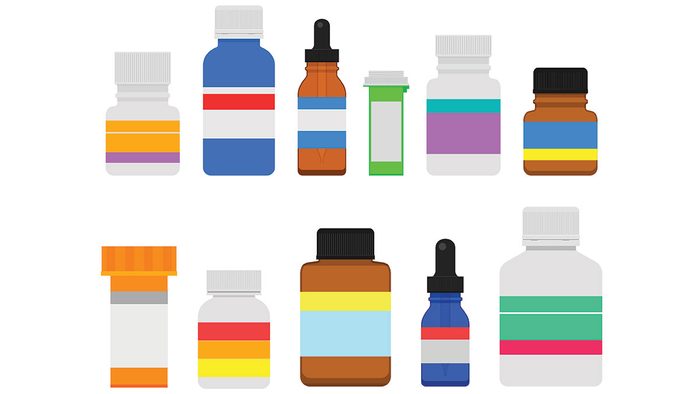
Probiotics are all trademarked, so you never really know what you’re taking.
Thanks to some recent-ish regulations, we now know exactly what is the probiotic you take.
When probiotic supplements and foods hit the mass market, knowing the difference between one probiotic and another was hard. But that’s changed, as probiotic names are not longer trademarked and are clear on the ingredients.
Dr. Celik says: “Foods and supplements that contain probiotics must be labelled with a list of ingredients in compliance with Health Canada,” says Celik about probiotics packaging now. “The probiotic bacteria must be identified by its common name or by a class name that meets the criteria outlined by Health Canada. When reading labels, you will see the genus, the species, and the strain of the probiotic bacterial culture. You will also see a list of non-medicinal ingredients. All of the information is provided to the consumer, allowing them to make an informed decision.”
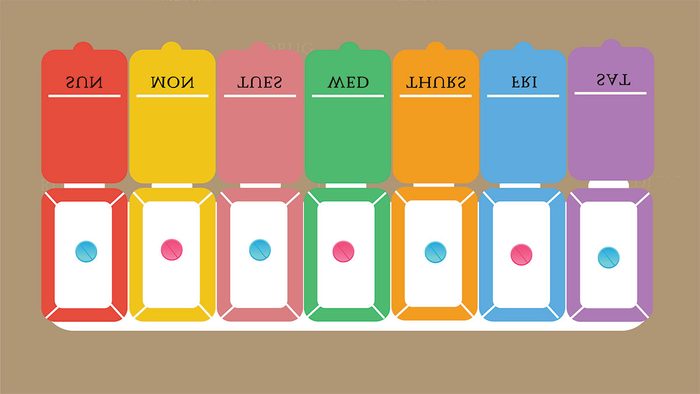
You should never take probiotics until you’re done taking antibiotics.
You can take them around the same time – you just have to be strategic.
Dr. Celik says: “Most healthcare professionals recommend taking probiotics while taking antibiotics. By doing so, a person is re-populating lost gut bacteria before it’s too late. As we know, people commonly experience antibiotic-associated diarrhea (AAD) or yeast infections with antibiotic use. By taking a probiotic at the same time as an antibiotic, a person is being proactive, rather than reactive. It is important to note that probiotics are best taken two to three hours [before or after taking] antibiotics.”

You can’t take too many probiotics. There’s no upper limit.
Your body will let you know when you’ve taken too much.
Dr. Celik says: “Twenty-three studies assessed adverse outcomes with the use of probiotics and none were found. Probiotics are considered safe to take. And in my 10 years of clinical practice, I’ve never seen a patient take too many. In the event that a person does take too much, their body will let them know, usually with a short bout of diarrhea.”

Only people with bad diets should consider probiotics.
No supplement will make up for eating junk food.
Dr. Celik says: “A probiotic is like a multivitamin for the gut. Although people with bad diets are more prone to dysbiosis – an imbalance of ‘good’ to ‘bad’ bacteria – most people benefit from taking probiotic supplements and eating a diet rich in prebiotic-rich foods, such as fibre. Gut bacteria is affected by more than just poor nutrition and is easily destroyed by chemical pollution, alcohol, stress, and medication – things that affect almost all of us. Combining a healthy diet with a daily probiotic supplement can help support healthier digestion, a stronger immune system, and much more.”
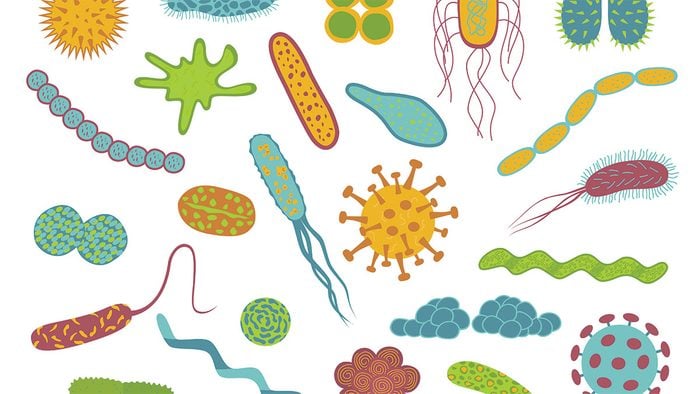
There’s no way to know if you have enough good bacteria.
We don’t exactly know, but we may know soon.
Dr. Celik says: “With advancements in science, we are learning more about the gut microbiome each day and the future is promising. Although we are not there yet, identifying our unique bacterial makeup with specialized laboratory testing is not far away. We already have clinical microbiome screening tests; however, these are not widely available. The tests of the future will detect beneficial and pathogenic microorganisms in the gut and will change the way we treat certain health conditions.”
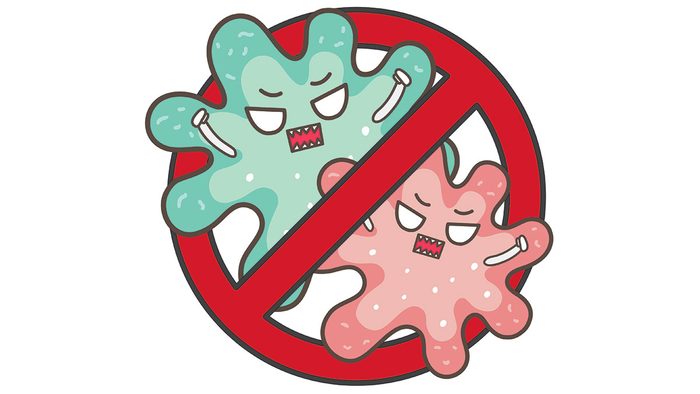
Bacteria is bad for us.
Not all bacteria is created equally.
Dr. Celik says: “Many people still view bacteria as a harmful invader. We need to understand that we are bacterial beings and ‘healthy’ bacteria are our friends. They work hard to protect us from viruses, parasites, and other pathogenic organisms. Friendly bacteria help with the digestion of food and produce certain vitamins such as vitamin B12. We need a strong army of these little bugs in order to achieve optimal health.”
To learn more about probiotics, check out these stories:
• 7 Common Probiotic Mistakes You’re Making
• Could Probiotics Improve Your Mental Health?
• Are Probiotics the Key to Clear Skin?
